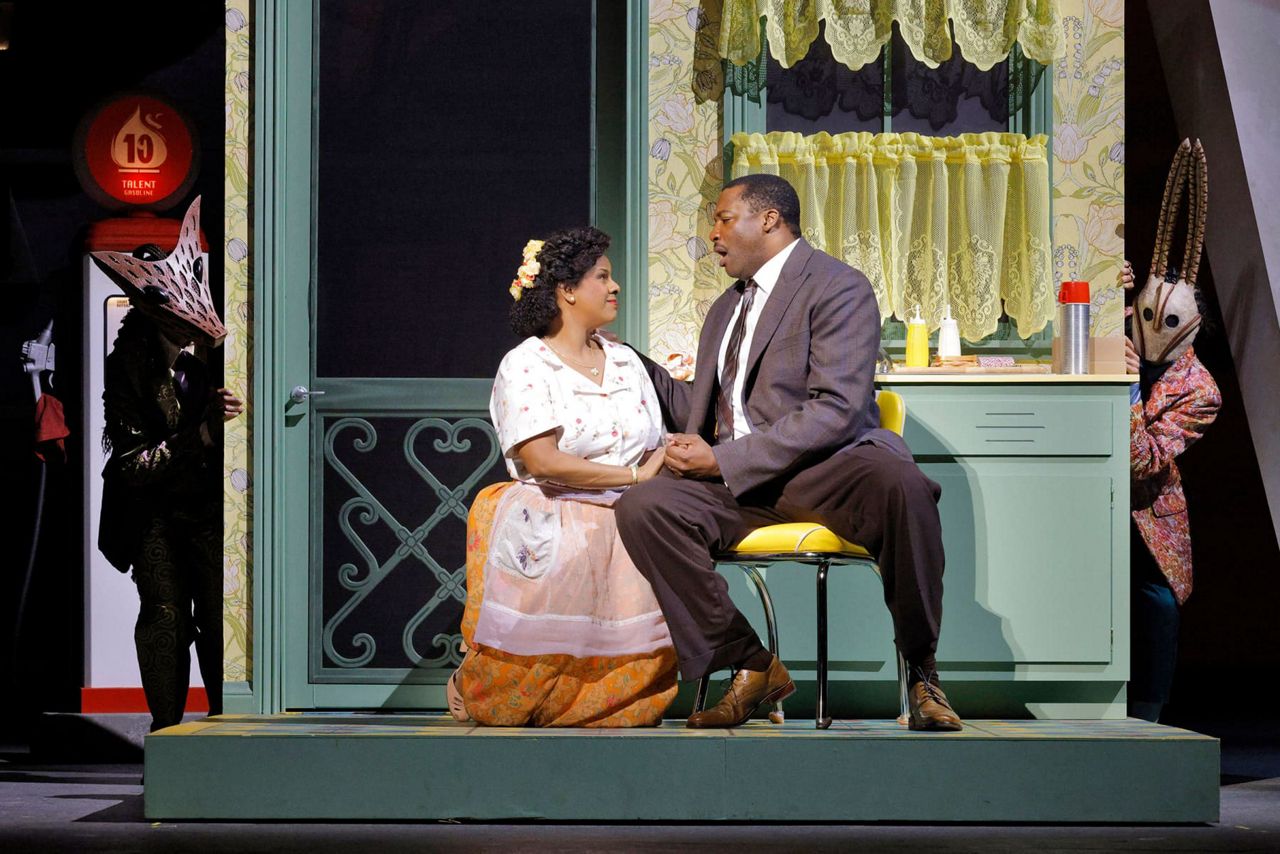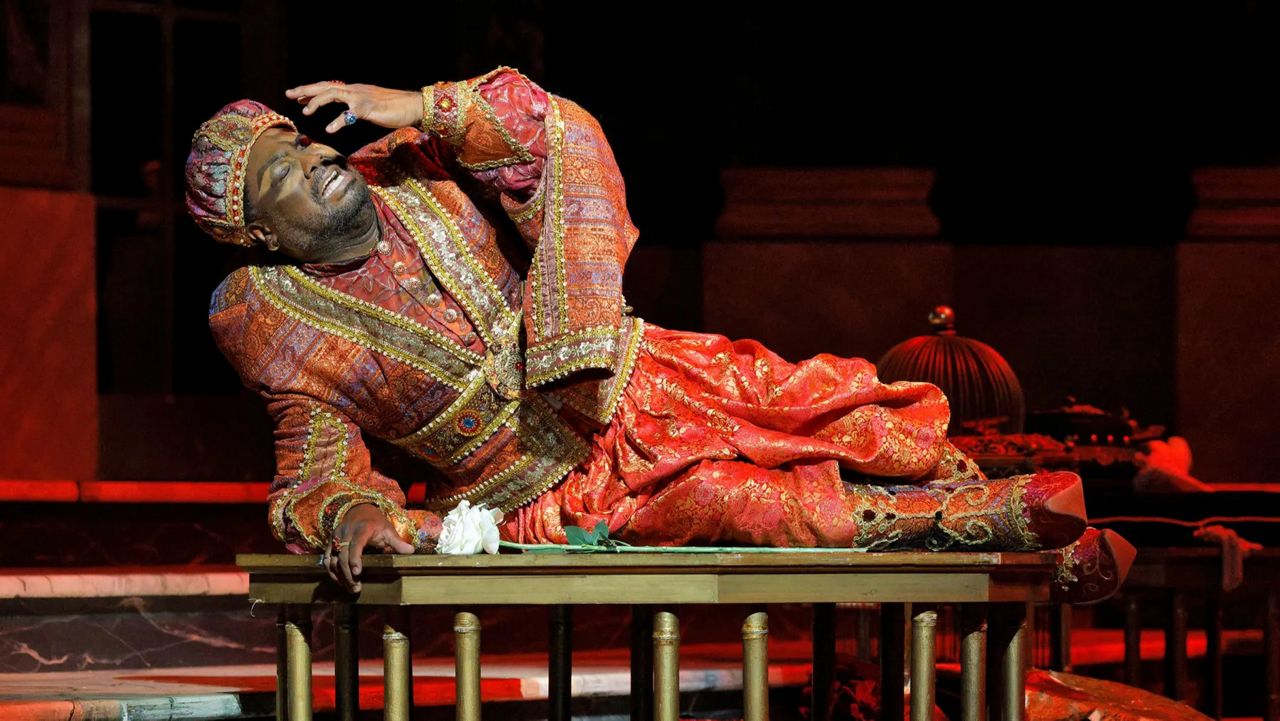LOS ANGELES — The music is soaring. The characters, richly drawn. And yet the opera "Highway 1, USA" is almost never produced.
William Grant Still, known as the dean of African-American composers, had a career full of firsts, including being the first Black conductor to conduct a major American symphony orchestra. That was in 1936 and the orchestra was the LA Phil at the Hollywood Bowl, where he led a program of his own work. An iconic venue for an iconic moment.
Director Kaneza Schaal was of course familiar with Still, who she calls one of the “great masters of speaking many musical languages.” She knew of his many symphonic compositions and his work in Hollywood, but says his operas — including this one — are new to her. And she’s not all that surprised.
“A lot of a lot of great works in our fine country have been suppressed,” she said, “and have not received the light that they ought to have.”
LA Opera’s production of the one act — part of their Recovered Voices initiative — is their first staging of the piece and is believed to be only the second professional production of it ever. It’s a distinctly American story, written in the 1940s and centered around the pursuit of the American Dream, but it’s also infused with African American tradition, including Brer Rabbit and Brer Fox, who the character of Mary sings about in the opening lines of the opera.

“She invokes this tradition of rabbit and fox,” Schaal explained, “trickster figures that exist in African-American traditions and come from the continent of Africa across the Atlantic, holding lineages of trickster logics.”
The piece is paired in a double bill with The Dwarf by Alexander Zemlinsky, a Jewish composer from Vienna. Written in the 1920s and sung in German by a chorus of women in enormous hoop skirts, The Dwarf would appear at first glance to have little in common with Highway 1, USA. However Rodrick Dixon, the tenor who sings the title role, says the connection is in the composers who both had their work and their voices stifled.
“William Grant Still suffered from Jim Crow and segregation in the United States,” Dixon explained. “Alexander Zemlinsky suffered from the Third Reich and oppression and how his cultural group and their cultural esthetics and all their historical significance was pretty much wiped out.”
“I think LA Opera has done a wonderful job of recovering their voices and allowing them to be seen and heard together and have this conversation with the communities at large,” he added.
And not just LA Opera. He’s glad to see curtains rising for Black composers, past and present, at other major opera houses around the country.
“I think that what we’re starting to experience now is the full gestalt of the American sensibility of music that’s universal. We have opera, classical, jazz, blues, gospel, western music, even some folk music,” Dixon said. "So I think that America is doing what it needs to do. It’s championing its own people and African-Americans are finally getting their chance and their shot."

It’s a major shift in attitude, Schaal says, and one that has a lot of lost ground that needs to be made up.
“People have been asked not to show up. Like it has been an active disinvitation,” she said. “And so to invite people into cultural institutions that have actively disinvited people for generations, it’s a huge uphill task.”
Highway 1, USA, with breathtaking production design by Christopher Myers, is Schaal’s return to LA Opera after 2022’s west coast premiere of Omar. She loves the art form, which she was introduced to as a child. Growing up in San Francisco in the 80s with the AIDS crisis all around her, she says the opera house seemed like one of the few places that could fully convey the enormous stakes of real life.
“I think this is a form that is big enough for those of us for whom the struggle of living is operatic daily,” Schaal explained. “And I think those are folks who’ve been excluded and asked not to come for a while, but it’s folks for whom this form is most legible.”
She’s issuing a standing invitation to come up and fill up your soul with the beauty of recovered voices.



?wid=320&hei=180&$wide-bg$)